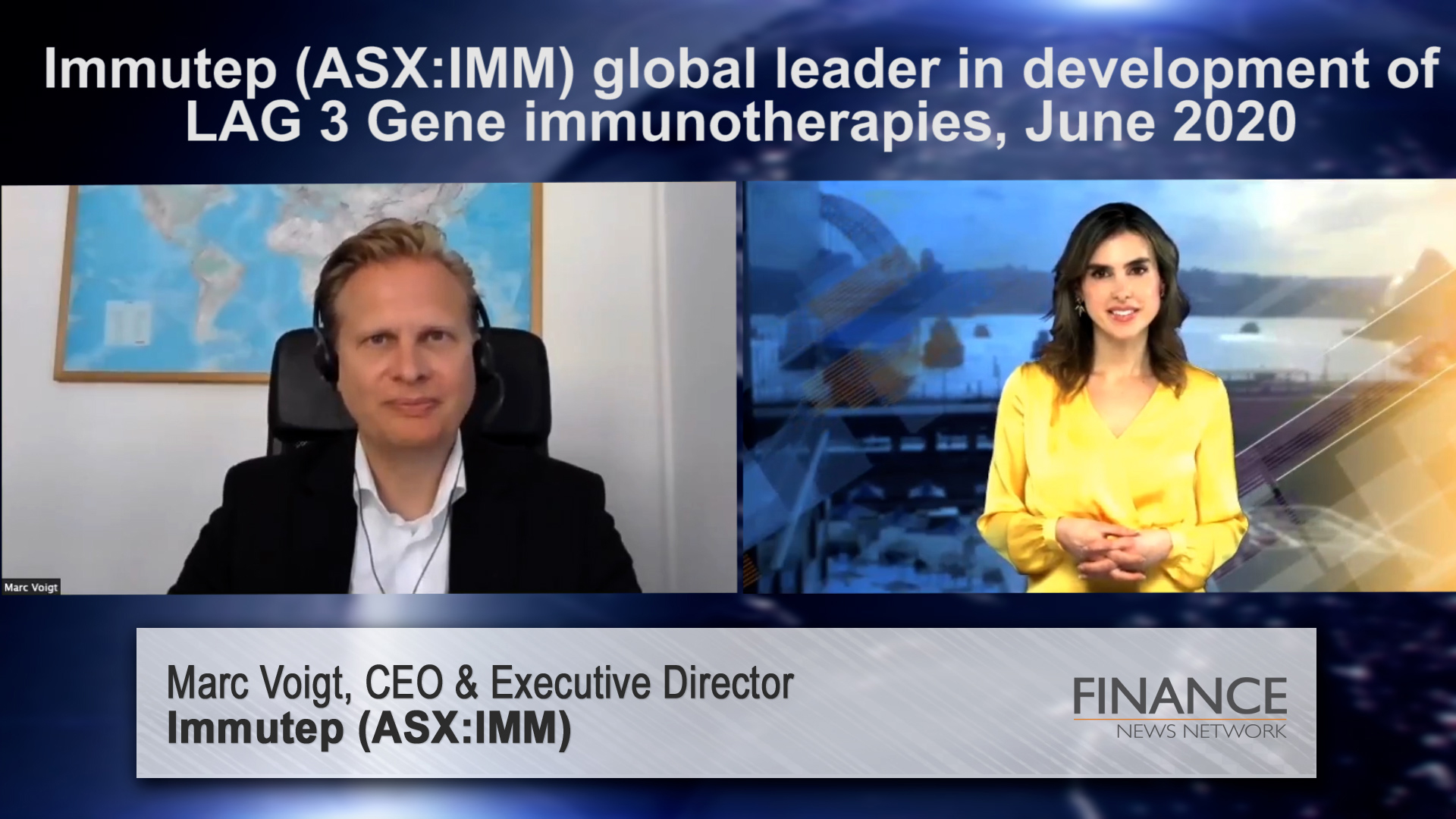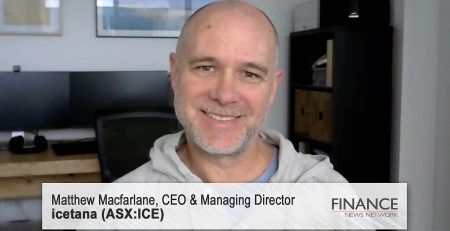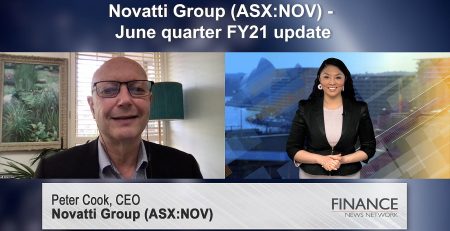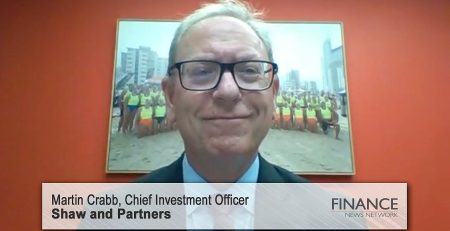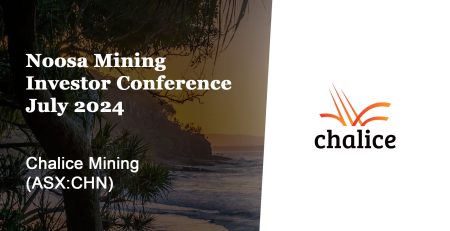Immutep (ASX:IMM) global leader in development of LAG 3 Gene immuno-therapies
Immutep (ASX:IMM) CEO, Marc Voigt provides an update on its clinical trials including metastatic breast cancer (MBC), its global leadership under Chief Scientist and Medical Officer, Professor Frederic Triebel, and the growing interest by big pharma in immuno-therapies.
Anna Napoli: Hello, Anna Napoli for the Finance News Network. Joining me from Immutep is CEO Marc Voigt. Marc, welcome back.
Marc Voigt: Nice to meet you, Anna.
Anna Napoli: First off, as the financial year comes to a close, could you remind us about the work that has taken place over the last 12 months?
Marc Voigt: Yes, sure. Immutep as a biotech company was fully focused on our core areas of expertise, which is, on the one hand side, immuno-oncology and then auto-immune diseases. All our product candidates made good progress, and we saw a lot of data in the past 12 months. We hope, of course, for more in the future.
Anna Napoli: A more general question, Marc, immunotherapy is the hot area of biotech for good reason. What advantages does it provide and why is big pharma so interested?
Marc Voigt: Indeed, you are right. It's a very, very hot area in biotech and the pharmaceutical industry. It's, I think, a paradigm shift we saw a few years ago in the way you treat cancer patients with immuno-oncology, so where you enable the patient's own immune system to actively fight cancer and, on the other hand side, the immune system is also responsible for a number of other diseases like autoimmune diseases, where you have an overreacting immune system.
So I think it's a quite strong logic why it makes sense to engage in that field. It's not only a logic, not only a scientific rationale, but there's also great market potential of the key drug there, a multi-billion dollar blockbuster drugs like Keytruda, for instance.
Anna Napoli: Thanks, Marc. Unless you're involved in biotech, the size of the opportunity isn't always easy to understand. If we could turn to your largest trial for metastatic breast cancer, how's it progressing and what's the science revealing?
Marc Voigt: Yeah. First of all, the trial, which is called AIPAC, has been fully recruited in June last year, so about a year ago. Then we reported first results in terms of progression-free survival by end of March this year. Unfortunately, it was not so well received by the market, and it was not up to our hopes that we can shortcut the development and go directly to registration.
But it was also quite encouraging. It would be so nice subgroups of patients benefited from the treatment was eftilagimod in terms of the so-called progression-free survival. We saw also an advantage in terms of the response rate.
But the main game is overall survival and these results are due by approximately end of this year. So the market reaction in the midst of the COVID uncertainty wasn't that nice, just to be very frank here, but the game is on and we are working on it and we will generate further results.
Yeah, and in metastatic breast cancer, which is a not very immunogenic disease, it's maybe also noteworthy that also the blockbuster drug Keytruda I mentioned had also some hiccups, so failures.
Anna Napoli: Can you also provide a comment on your other clinical trial in non-small cell lung cancer?
Marc Voigt: Yes, that's a trial with the same drug candidate eftilagimod, which we do together with Merck in the US so combination of Keytruda plus eftilagimod, indeed, as you said, in non-small cell lung cancer, as well as in head and neck cancer. Fabulous results we saw at AACR, so end of April and now, again, at ESCO where we doubled the response rate of Keytruda in first-line non-small cell lung cancer and second-line head and neck cancer. Of course, we will generate further results, but as an interim step, this was very, very encouraging.
Anna Napoli: What is the potential payoff versus risk for shareholders when investing in Immutep?
Marc Voigt: First of all, I believe as a general rule in biotech, not only specific to Immutep, it's important to have a portfolio of different drug candidates. I mean, we talk here about science, about experiments. These experiments, of course, can also go wrong or not deliver the expected results, so to have a portfolio of multiple drug candidates is important.
Also to have multiple clinical trials, so multiple shots on goal and also to team up with the big pharmaceutical industry. For instance, Immutep has partnerships with GlaxoSmithKline, with Novartis, Merck. I mentioned already also Pfizer and German Merck and other smaller companies. I believe these are the right ingredients to achieve something very big.
Anna Napoli: Marc, COVID-19 is the question on everyone's minds at the moment. How did the company go during the lockdowns and how has it placed going forward?
Marc Voigt: Yeah, thank you. Indeed, an important question. COVID is affecting all businesses, including biotech and the pharmaceutical industry. As a company, operationally, we have not been affected that much, so I have been continuously in the office, for instance. Also as we have a global presence, we are used to work at different hours also from home, so that was okay.
The clinical trials have been effected a bit so, of course, patient recruitment is slower. The patients are more cautious. They need to be protected. This is, of course, number one and most important.
Then also the readouts could be delayed. For Immutep, maybe not that dramatic as we have our biggest trial AIPAC fully recruited. TACTI-002, the trial with Merck, more than 70% recruited and the trial with Pfizer also a hundred percent recruited, so that impact might be limited. But, overall, I believe the economy and also the biotech industry will see some consequences here.
Anna Napoli: Last question, Marc. Is there anything else you'd like to tell investors?
Marc Voigt: Yeah. I believe we had some exciting past 12 months. We will have even more exciting coming 12 months. We are working on a lot of different initiatives and things. We are working on our clinical trials. Our collaborators are moving forward. For instance, the clinical proof of concept for the drug we outlicensed to GlaxoSmithKline as expected in first half next year, calendar year, so first half of '21.
Also in terms of LAG3 as such, we are the leaders in terms of LAG3, the immune checkpoint. There is Bristol Myers Squibb, and if they validate LAG3, they have a phase three, which may read out end of this or beginning of next year. This would, of course, be big for us as well as we are the global leaders in LAG3.
Anna Napoli: Marc Voigt, thanks for the update.
Marc Voigt: Thank you so much. It was a pleasure.
Ends
Copyright 2020 – Finance News Network
Source: Finance News Network

